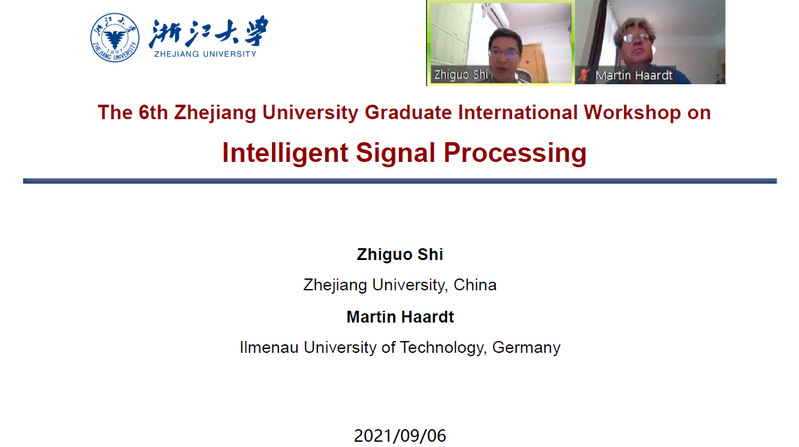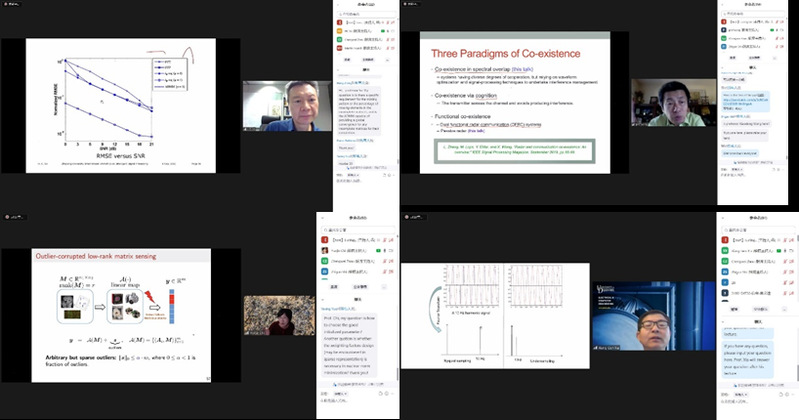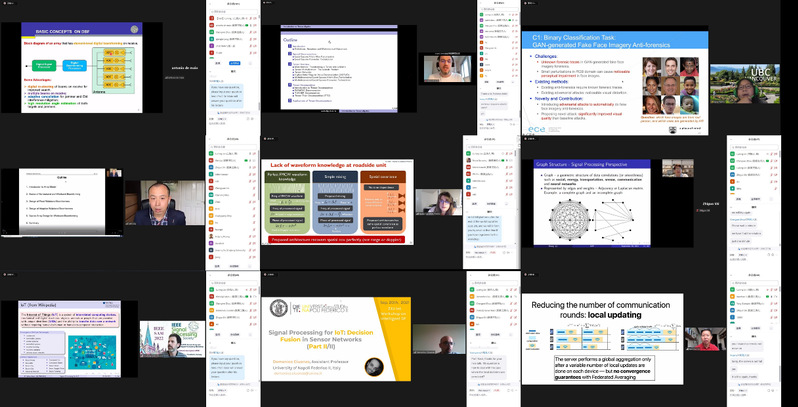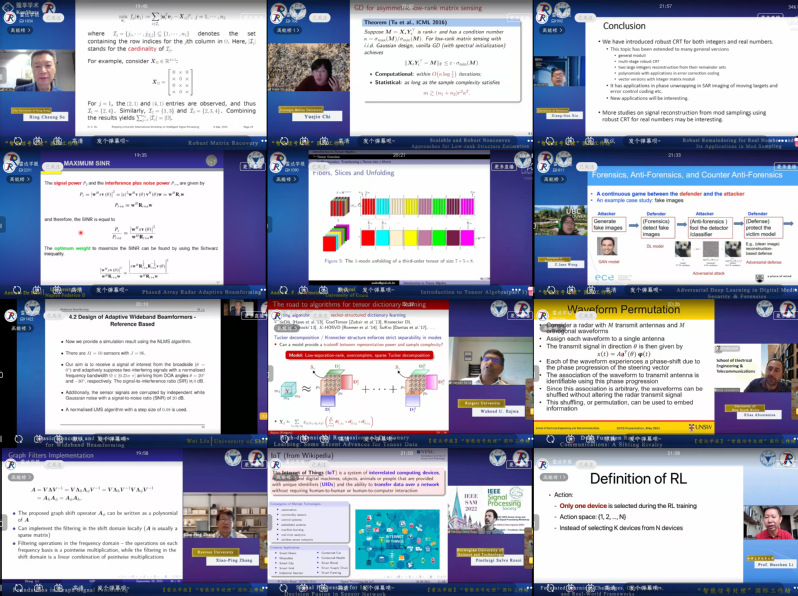On September 6-21, 2021, the 6th Zhejiang University International Workshop on Intelligent Signal Processing was successfully held.
This Workshop was sponsored by Zhejiang University, co-sponsored by the Radar Society of Chinese Institute of Electronics, Hangzhou Future Sci-tech City, and organized by the Graduate School of Zhejiang University and the State Key Laboratory of Industrial Control Technology of Zhejiang University. Professor Zhiguo Shi, Professor Martin Haardt served as the chairs. The event included 16 cutting-edge lectures. Specially invited experts were from City University of Hong Kong, Columbia University, Carnegie Mellon University, University of Delaware, Federico II University of Naples, etc.
Nearly 500 students from more than 90 universities at home and abroad participated in this international workshop. This workshop focused on the issue of intelligent signal processing, aiming to provide two-week special lectures for students. Topics covered hot issues such as integrated sensing and communication, multi-dimensional tensor signal processing, and a new generation of perception technology based on deep learning.
On the evening of September 6, Prof. Zhiguo Shi and Prof. Martin Haardt chaired the opening ceremony, introduced the overview of the international workshop and the speakers, and welcomed all the speakers and students and faculty who attended the workshop.

Professor Zhiguo Shi and Professor Martin Haardt hosted the opening ceremony
In the first week, Professor Hing Cheung So from City University of Hong Kong gave a rigorous and logical insight into two lp-parametric based decomposition methods to achieve computationally simpler and robust matrix recovery; Prof. Xiaodong Wang from Columbia University shared the current hot topic of DFRC and introduced techniques such as Atomic Norm and Deep Unfolding Network; Prof. Yuejie Chi from Carnegie Mellon University talked about how to understand non-convex loss function maps by statistical inference geometry and how gradient descent exploits this geometry in an implicit way to achieve both computational and statistical efficiency; Prof. Xiang-Gen Xia from the University of Delaware introduced robust CRT, which is applicable not only to large integer reconstruction but also to large real reconstruction from incorrect remainders, and he also introduced its application to mod sampling, i.e., reconstructing signals from mod samples.

Professors' lectures during the first week of the International Workshop
In the second week, Professor Antonio De Maio from the Università di Napoli Frederick II, Italy, introduced adaptive digital beamforming (DBF) for phased-array radar, explaining the non-ideal situations encountered in real-world environments and the impact of incorrect training data selection, combined with a machine learning-based approach to select suitable reference data for adaptation; Professor André de Almeida from the Federal University of Ceará introduced basics of tensor algebra; Prof. Z. Jane Wang from the University of British Columbia presented her research work on digital media security and forensics in the field of adversarial deep learning; Prof. Wei Liu from the University of Sheffield gave a talk on the fundamental ideas and techniques of broadband beamforming; Professor Nuria González Prelcic from North Carolina State University shared techniques related to integrated sensing and communication(ISAC); Professor Waheed U. Bajwa from Rutgers University gave a talk on High-dimensional Regression and Dictionary Learning; Prof. Elias Aboutanios from the University of New South Wales introduced the concept of DFRC, explained a method for embedding communication information into radar waveforms in detail, and described a generic signal model that allows for fast information embedding methods; Professor Yao Xie from Georgia Institute of Technology introduced a new general modeling method for capturing spatio-temporal interactions, which has an efficient model estimation process and establishes statistics by linking a modern convex optimization theory; Prof. Pierluigi Salvo Rossi of Norwegian University of Science and Technology and Prof. Domenico Ciuonzo of Frederick II University of Naples joined hands to bring the theme report Signal Processing for IoT: Decision Fusion in Sensor Networks; Prof. Li Baochun from University of Toronto brought us a theme report entitled Federated Learning: Challenges, Opportunities, and Real-World Frameworks.

Professors' lectures during the second week of the International Workshop
The international workshop attracted nearly 500 teachers and students from more than 90 universities at home and abroad and researchers from all walks of life to register and participate in. The average number of viewers of all lectures on Zoom platform and bilibili broadcast platform reached 1,228 and the highest real-time viewership reached 2,070.

Bilibili platform live streaming
This international workshop opened up the academic horizons and cultivated the academic enthusiasm of the graduate students in the field of College of Information Science and Electronics Engineering, Zhejiang University and the Group of Networked Sensing and Control (NeSC), Zhejiang University in the field of signal processing.
